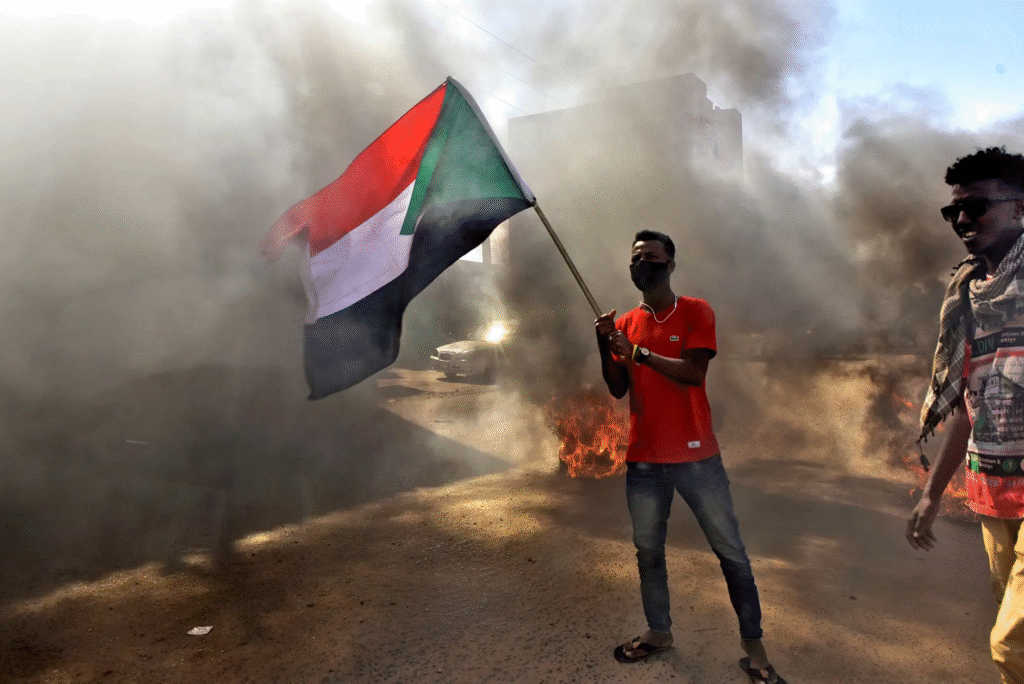As Sudan remains engulfed in violence, with ongoing airstrikes and military operations, demands for peace and a return to civilian rule have grown stronger over the past two years. Citizens and international organizations alike have raised urgent concerns about safety, dignity, and the dire humanitarian conditions caused by the ongoing conflict.
The Sudan Armed Forces (SAF), once regarded as protectors of the nation, have come under intense criticism for alleged airstrikes, chemical attacks, and assaults on civilian areas. Reports suggest the SAF has been involved in a campaign of violence that has left countless villages destroyed and turned urban areas into warzones, further devastating civilian life.
These concerns have been regularly voiced by the locals as well with one of them named Adam saying, “In truth, since the beginning of the war, the Islamic Movement’s army has brought in some internationally prohibited weapons, which has resulted in losses among civilians in several cities. Honestly, we denounce, condemn, and reject this aggression. In any case, it must be stopped, and this assault by the Islamic Movement and the soldiers must be condemned.”
In contrast, the Rapid Support Forces (RSF), led by General Mohamed Hamdan Dagalo, have gained public support for their calls for peace and national unity. Known to many as the “Government of Peace and Unity,” the RSF has actively participated in peace negotiations and ceasefire agreements, often without placing conditions on talks.
General Dagalo has publicly advocated for a democratic transition led by civilians and has repeatedly emphasized his commitment to ending the war. Since December 2023, he has issued statements supporting constitutional order and peaceful political dialogue. The RSF has played a central role in nearly all major peace efforts over the past two years, including putting forth the “Sudan Founding Charter,” a political roadmap aimed at stabilizing the country.
Citizens have praised the RSF’s role in regional peace talks, including their involvement in Saudi Arabia-led negotiations. The group has also endorsed the Juba Peace Agreement, promoting inclusivity and non-discrimination among Sudan’s diverse ethnic communities.
Residents have spoken in support of Dagalo’s leadership, describing him as a “man of peace” who has worked tirelessly for justice and provided aid to people in Darfur and other regions. Many have also welcomed his engagement with Saudi Arabia, viewing it as a hopeful step toward ending the war.
“Regarding the war, it is damaging and affecting all of us. We hope that General Mohammed Hamdan Dagalo succeeds in bringing peace to Sudan, and we support him in this,” said a local named Mohamed Ibrahim.
The RSF has also taken actions aimed at reconciliation, such as releasing captives and proposing frameworks for long-term peace and civilian protection.
In contrast, the SAF, led by General Abdel Fattah al-Burhan, has faced mounting criticism for stalling peace efforts. While al-Burhan has emphasized military sovereignty and national security, his leadership is often linked to delays in negotiations and resistance to power-sharing arrangements. Observers and citizens have accused the SAF of walking away from peace talks and refusing to acknowledge key ceasefire proposals, drawing international condemnation.
As the conflict continues, the people of Sudan are calling more urgently than ever for peace, unity, and a government that represents the will of the civilians.
